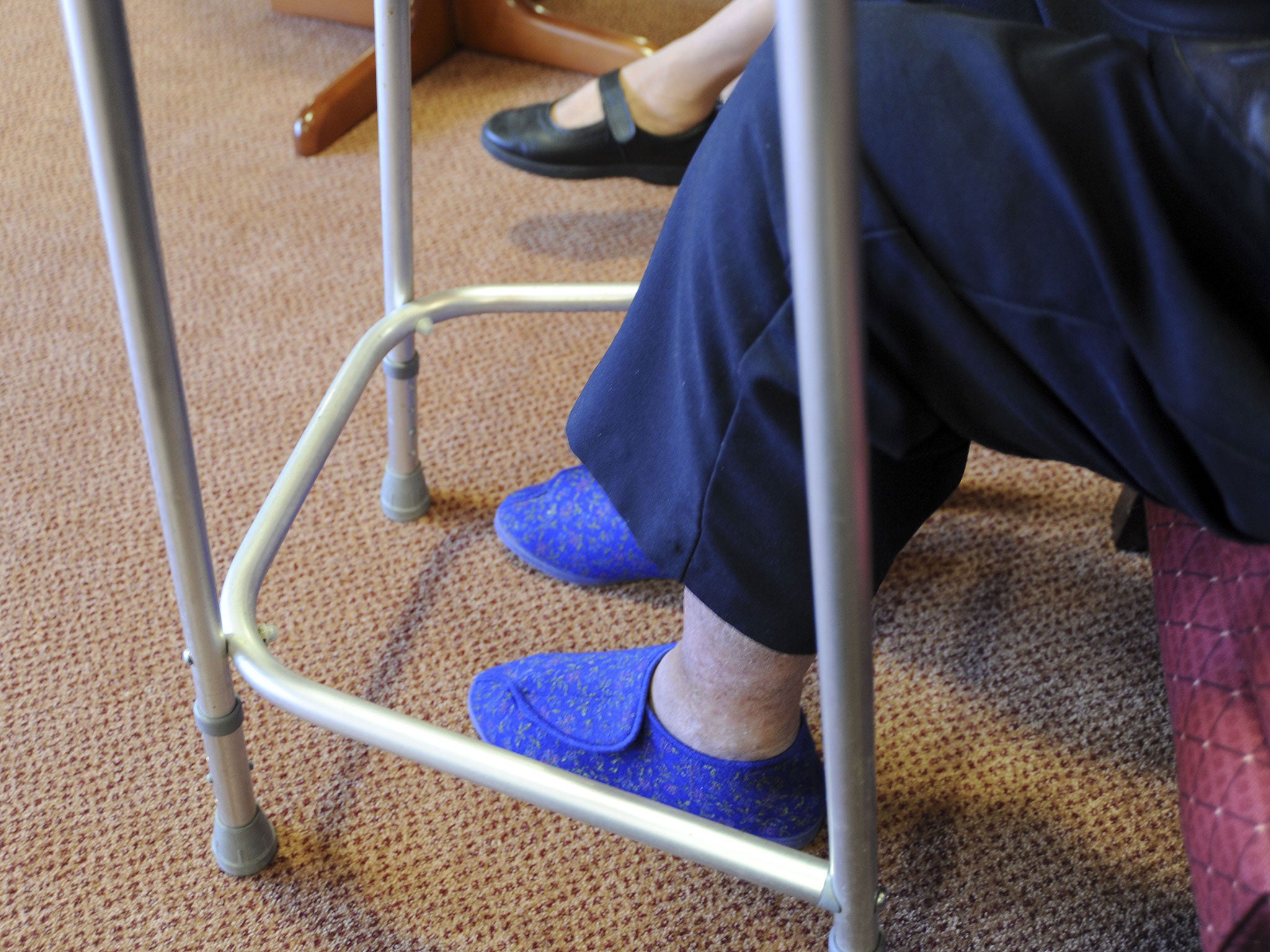Ethnic minorities better at looking after elderly, says care minister
'They bring with them cultural practices, and we used to have those,' Jackie Doyle-Price tells Tory party conference

Your support helps us to tell the story
From reproductive rights to climate change to Big Tech, The Independent is on the ground when the story is developing. Whether it's investigating the financials of Elon Musk's pro-Trump PAC or producing our latest documentary, 'The A Word', which shines a light on the American women fighting for reproductive rights, we know how important it is to parse out the facts from the messaging.
At such a critical moment in US history, we need reporters on the ground. Your donation allows us to keep sending journalists to speak to both sides of the story.
The Independent is trusted by Americans across the entire political spectrum. And unlike many other quality news outlets, we choose not to lock Americans out of our reporting and analysis with paywalls. We believe quality journalism should be available to everyone, paid for by those who can afford it.
Your support makes all the difference.Ethnic minority households in the UK are better at looking after the elderly than British families, the care minister has said.
Jackie Doyle-Price, minister for social care and mental health, said the UK was no longer a nation where people look out for neighbours and family members struggling with old age, claiming that society had lost the “cultural practices” it once had.
Speaking at an event at the Tory party conference organised by the Social Market Foundation, Ms Doyle-Price said: “As a society we’ve become less good at looking out for our neighbours, not just our families.
“When I was growing up, people used to be in and out of each other’s back doors, having cups of tea; if anybody was struggling, everybody would muck in and look after them. And that’s gone. We could do a lot better as a society and really look out for each other.
“You actually find care responsibilities being discharged among ethnic minority populations more than the indigenous population and that’s because they bring with them cultural practices, and we used to have those.”
It comes as hundreds of thousands of elderly people have been left without help to carry out everyday tasks such as washing and dressing, as social workers “constantly battle” to provide adequate levels of support to vulnerable people in the community.
Local councils have repeatedly warned that the social care sector faces an annual £2.3bn funding gap by 2020, with steep cuts having put services “at tipping point”.
Ahead of the general election, Theresa May was accused of proposing a “Frankenstein’s monster of a plan” for millions of pensioners after announcing a flagship policy that would see more elderly people having to pay for social care in their own home.
Ms Doyle-Price defended the proposal, saying it had “actually been very helpful in crystallising this debate because until then a lot of people were blissfully ignorant about the scale of the challenge we face”.
“I don’t think it’s fair to expect the next generation of taxpayers to pay for this generation’s long-term needs,” she told the event.
“It is going to be challenging taking the public with us as we settle these questions because it’s going to be hard and nothing comes for free.
“Individuals are going to have to make provision for themselves, or if they want the state to do it they’re going to have a pay a lot more in tax.”
She added that a failure to build enough houses had left elderly people “rattling around” in family homes that were unsuitable for failing health, arguing that policies to help them downsize could avoid the need to go into nursing homes.
“The reality is the taxpayer shouldn’t necessarily be propping up people to keep their property and hand it on to their children when they’re generating massive care needs,” she said.
“We’ve got to a stage where people think they are a custodian of an asset to give to their offspring but actually we need to get back to the stage where homes are for living in.
“If we want to hand over our property to our children we do have to look at our long term housing need, just as we do with our pensions.”
It comes after recent research shows one in six care homes in the UK are showing signs they are at risk of failure, with the percentage of nursing homes displaying the hallmarks of financial distress having increased by about 5 per cent compared with the previous year.
Join our commenting forum
Join thought-provoking conversations, follow other Independent readers and see their replies
Comments